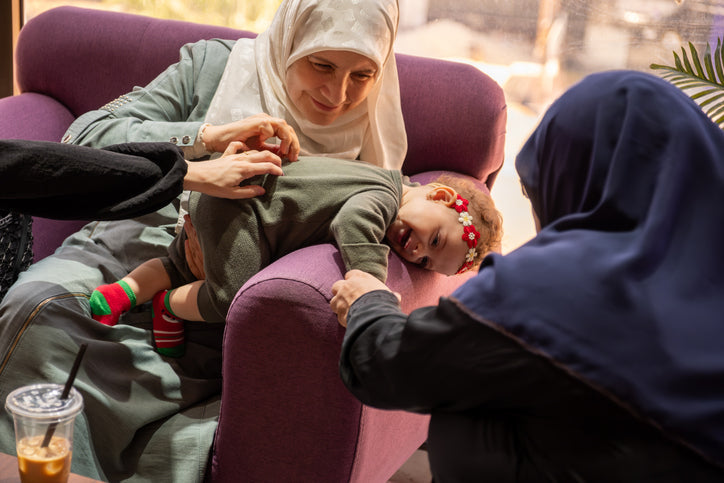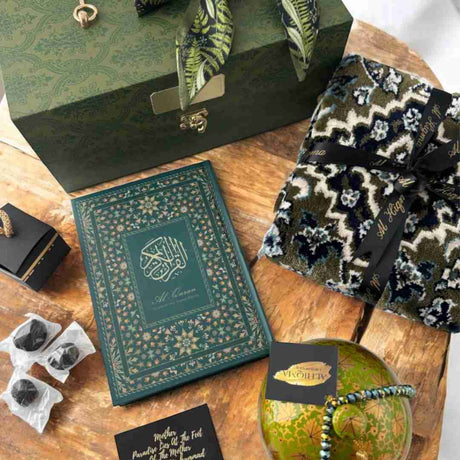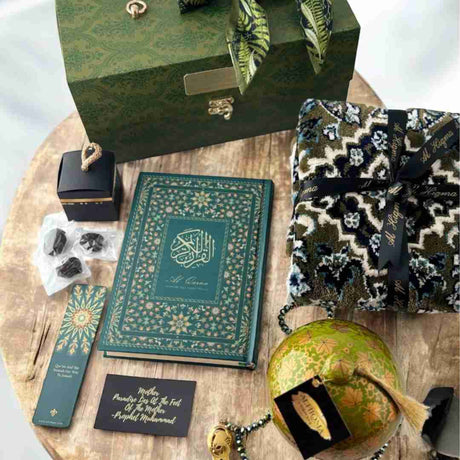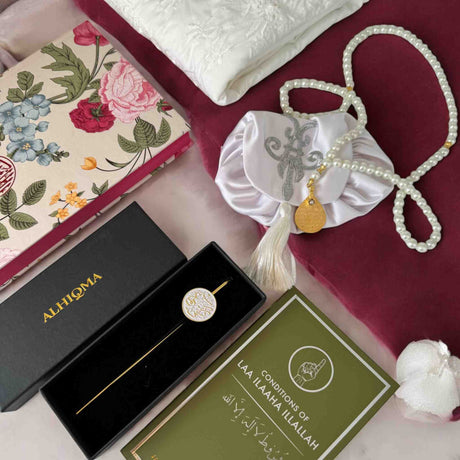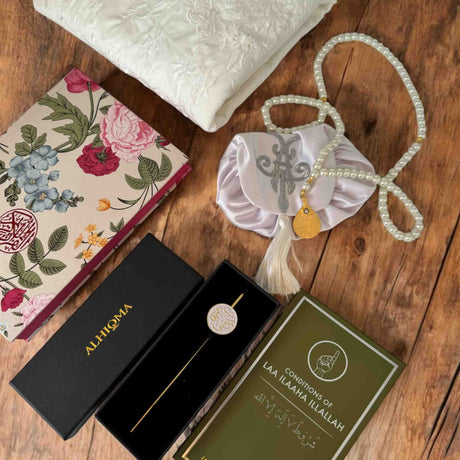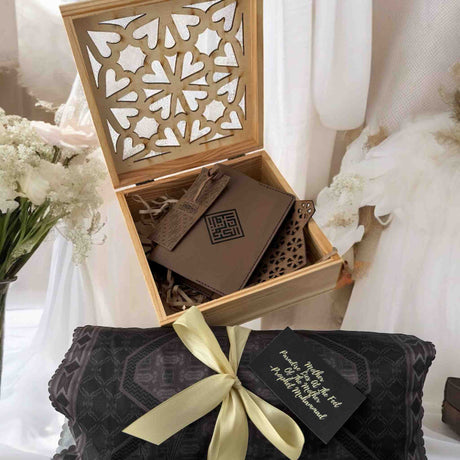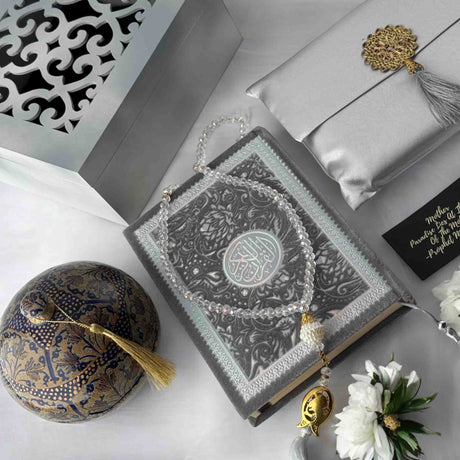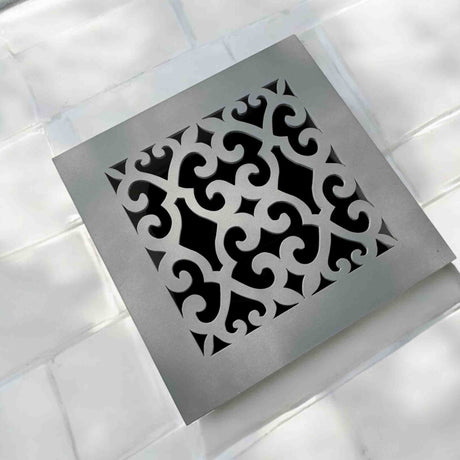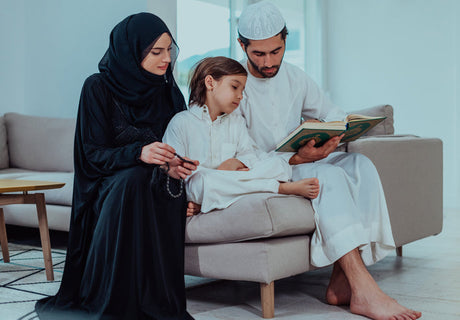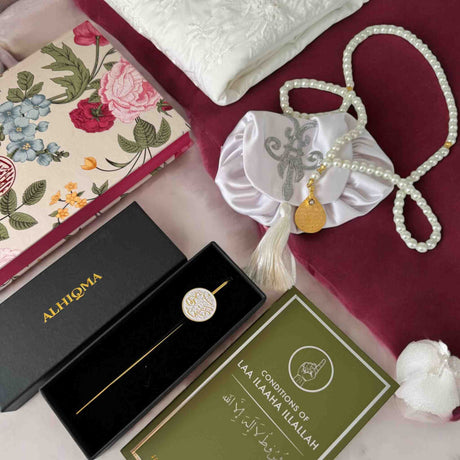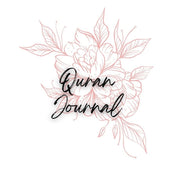Key Takeaways
- Divine Recognition: The Quran explicitly elevates mothers through verses highlighting their sacrifices, connecting gratitude to Allah with gratitude to mothers as seen in Surah Luqman 31:14.
- Prophetic Emphasis: The Prophet Muhammad ﷺ placed mothers at the forefront of deserving good treatment, emphasizing them three times before fathers in authentic hadith, establishing a clear hierarchy of respect in Islamic tradition.
- Cultural Integration: After 7 years of serving Singapore's Muslim community, I've observed how Southeast Asian traditions beautifully align with Islamic teachings on honoring mothers through practical gifts and actions—creating opportunities for both spiritual growth and meaningful connection.
"Your mother. Your mother. Your mother."
These were the Prophet Muhammad's ﷺ repeated words when asked about who deserves our best treatment—a profound emphasis that reveals a fundamental truth about motherhood in Islam.
In today's hectic life—balancing career demands, parenting responsibilities, and spiritual growth—it's easy to overlook the extraordinary reverence Islam gives to mothers. Yet, no relationship receives such explicit divine recognition in our faith.
At AlHiqma, where I've spent seven years helping Singapore's Muslim community express faith through meaningful objects, I've observed how the relationship between a mother and child embodies the purest manifestation of love, sacrifice, and mercy. This relationship isn't just culturally significant—it's divinely acknowledged through both the Quran and authentic Sunnah.
A Mother's Status in the Quran
Her Sacrifice is Divinely Recorded
The Quran speaks with remarkable tenderness when describing maternal sacrifice. As stated in the Quran:
"And We have enjoined upon man [care] for his parents: his mother carried him, [increasing her] in weakness upon weakness, and his weaning is in two years. Be grateful to Me and to your parents; to Me is the [final] destination." (Surah Luqman 31:14)
This verse doesn't merely instruct—it creates a direct connection between gratitude to Allah and gratitude to parents, particularly highlighting the physical hardships mothers endure. The phrase "weakness upon weakness" captures the progressive physical toll of pregnancy, labor, and nursing with profound empathy.
Gratitude as Spiritual Practice
Notice how Allah pairs thankfulness to Him with thankfulness to parents—especially mothers. This pairing isn't coincidental; it elevates honoring one's mother from being merely a good deed to an act of worship itself.
Islamic scholars note that this verse is one of several where Allah connects gratitude toward Him with gratitude toward parents, revealing the elevated spiritual status of motherhood in our faith tradition.
The Prophet ﷺ and the Elevated Rank of Mothers
Repeated Emphasis from the Messenger
In one of the most frequently cited hadiths regarding family relationships:
A man came to the Prophet ﷺ and said, "O Messenger of Allah, who among the people is most deserving of my good companionship?" He ﷺ said, "Your mother." The man asked, "Then who?" He ﷺ said, "Your mother." The man asked again, "Then who?" He ﷺ said, "Your mother." The man asked once more, "Then who?" He ﷺ said, "Your father." (Sahih al-Bukhari, Hadith 5971)
This repetition isn't simply poetic emphasis—it's deliberate spiritual instruction establishing mothers as deserving three times the care, attention, and kindness before even mentioning fathers. In Southeast Asian Muslim households, where filial piety is deeply valued, this teaching resonates particularly strongly.
Paradise at Her Feet
Another beautiful hadith reinforces this elevated status:
The Prophet ﷺ said, "Paradise lies under the feet of the mother." (Sunan an-Nasa'i, 3104)
This profound statement directly connects our treatment of mothers with our ultimate spiritual destination. Serving one's mother isn't just recommended—it's presented as a direct pathway to Jannah (Paradise).
Honouring Mothers in Southeast Asian Muslim Tradition
In Malay-Muslim culture across Singapore and Malaysia, expressions of filial love traditionally take form through specific acts—preparing a mother's favorite meal, offering thoughtful gifts particularly on Fridays, or quietly performing services without expectation of acknowledgment.
Cultural Expressions of Honor
During my years serving Singapore's Muslim community, I've observed beautiful cultural practices that align perfectly with Islamic teachings:
- The tradition of "salam" where children kiss their mother's hand after prayers
- Setting aside the first portion of special foods for one's mother
- Seeking a mother's blessing (doa) before important life events
These practices aren't merely cultural—they're spiritual expressions grounded in teachings from the Quran and prophetic guidance.
The Importance of Honoring Mothers
At AlHiqma, I believe that honoring mothers deserves thoughtful expressions that carry spiritual significance. Over my seven years working with Islamic lifestyle products, I've come to appreciate how important it is to recognize mothers in ways that are authentic and meaningful.
The Islamic tradition encourages us to honor mothers not just with words but through sincere actions that demonstrate respect, care, and gratitude. This can take many forms, from offering kind words to performing acts of service.
Practical Applications for Everyday Life
For the Working Mother
For the busy professional Muslim woman like Aisha from Bedok—juggling work responsibilities with raising children—honoring her own mother while teaching her children the same value requires thoughtful balance:
- Include your mother in daily duas with your children: "Ya Allah, bless Nenek with health, happiness, and barakah in all her affairs."
- Create a weekly ritual of calling or visiting your mother after Friday prayers, perhaps bringing a small gift or homemade treat.
- When purchasing Islamic items for your home, consider getting a matching piece for your mother—creating a beautiful connection through shared faith practices.
For Children and Teens
Even young Muslims can be taught practical ways to honor their mothers:
- After each salah, make it a habit to approach your mother with a respectful salam
- Offer to help with household tasks without being asked
- Express gratitude specifically for things your mother does, recognizing her ongoing sacrifices
As we've seen from our customers in East Singapore, even simple gestures like writing thoughtful notes or creating memory books can help families document and celebrate small acts of kindness toward mothers.
Frequently Asked Questions
Q: What does Islam say about obeying mothers if they are not practicing Muslims?
A: Islam still commands kindness and respect toward mothers regardless of their religious practice. As long as your mother does not ask you to disobey Allah, you must treat her with honor and patience. The Quran (Surah Luqman 31:15) provides guidance for maintaining respect while staying firm in faith.
Q: Can I still honor my mother if she has passed away?
A: Yes. The Prophet Muhammad ﷺ taught us to continue honoring deceased parents by making dua for them, giving charity in their name, fulfilling their unfulfilled promises, and maintaining ties with their friends and relatives—all considered ongoing good deeds that benefit them.
Q: How do I teach my children to love and respect their grandmother?
A: Create opportunities for meaningful interaction, share stories about your mother's kindness and sacrifices, involve children in preparing gifts for grandmother, and model respectful behavior yourself. Even young children can learn through simple practices like offering salam after prayers.
Q: Is it sunnah to give gifts to mothers regularly?
A: While not specifically obligated, gift-giving is encouraged in Islam as the Prophet ﷺ stated: "Exchange gifts, as that will lead to increasing your love for one another" (Al-Bukhari). Directing this practice toward one's mother combines two virtuous acts.
Q: Are there specific duas from the Quran for mothers?
A: Yes, the Quran teaches us this beautiful dua:
"My Lord, have mercy upon them (parents) as they brought me up when I was small." (Surah Al-Isra 17:24)
This concise yet powerful supplication encompasses gratitude, recognition of sacrifice, and request for divine mercy.
About the Author
This article was written by Sheela M. Ahmed, a content editor and Islamic lifestyle writer at AlHiqma, blending traditional teachings with contemporary Muslim experiences. Her articles are grounded in values from the Quran and real-life applications. As the owner of AlHiqma, Sheela has been serving Singapore's Muslim community since 2018 with premium Islamic lifestyle products.
Reflection and Action
Start your journey of maternal gratitude with both sincerity and beauty. Take time to reflect on how you can honor your mother in ways that are meaningful to her specifically.
What special tradition does your family practice to honor mothers in your home? Share with us in on instagram or facebook and let's celebrate the diverse ways our community expresses this important Islamic value.
To learn more about incorporating Islamic values into family life, explore resources that help you create meaningful traditions for children.

